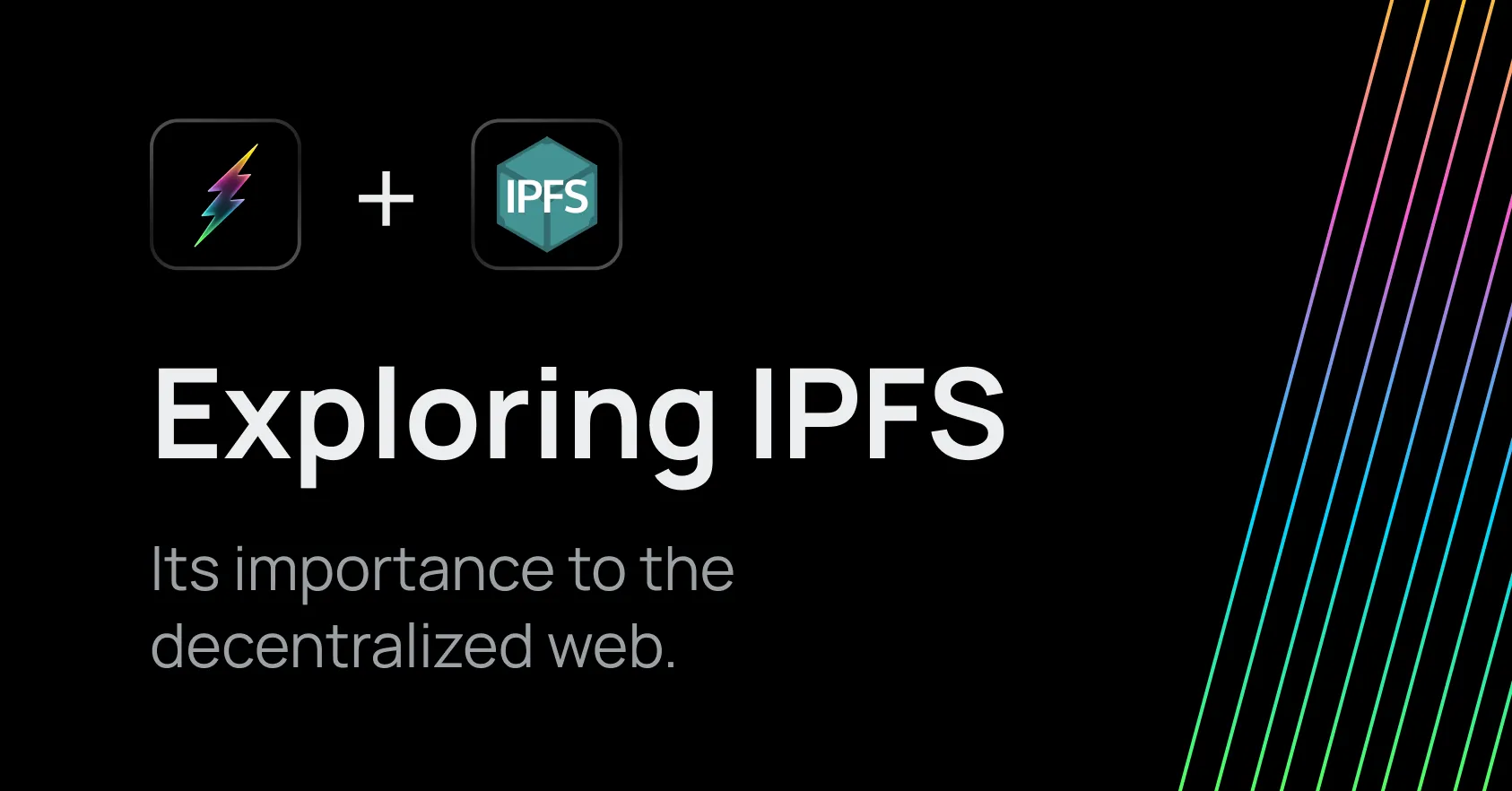Discover IPFS: How it's Ushering in a New Approach to Decentralized Internet & Storage

The Internet has evolved tremendously since its early days, and as we continue to adapt to emerging technologies, addressing the limitations of traditional web infrastructure has become crucial. Content addressing, a more efficient and secure way to access and store data, is now considered a natural evolution of the Internet.
With the rapid advancements in areas like artificial intelligence, ensuring content authenticity and provenance is more important than ever. The InterPlanetary File System (IPFS) offers a solution to these challenges, ushering in a new era for content on the web.
Understanding the Role of IPFS in a Decentralized Internet
Traditional IP or URL/IP-based content addressing operates on a location-centric model, using specific, unique identifiers like IP addresses or URLs to access the content. Content is retrieved using a URL that points to a specific location, like a server. This model, while prevalent and generally effective, is inherently centralized, creating a single point of failure. This centralization risk poses a challenge to data availability and resilience, making the system susceptible to outages, censorship, or control by a single entity.
IPFS: A Peer-to-Peer Alternative
IPFS presents an alternative to traditional web infrastructure by using a peer-to-peer node network and pinning approach
Using content addressing and unique digital identifiers, known as hashes or Content Identifiers (CIDs) this approach offers several key advantages, including content authenticity, censorship resistance, and provenance.
By allowing users to access content directly through its unique hash or CID, IPFS makes it possible to verify the origin and integrity of the content. This ensures a secure environment for sharing and accessing information, free from tampering.
Performance Improvements Through Hashing/Chunking
Furthermore, IPFS introduces performance improvements through hashing and chunking, which help reduce latency and enhance data availability. Data is broken down into chunks, and each chunk is identified by a unique CID, created by hashing the data. As a content-addressed system, data is stored as chunks in multiple locations and is fetched based on content, not location. IPFS uses structures like IPLD and UnixFS to manage relationships between data chunks, and stores and transfers these chunks using Content Addressable aRchive (CAR) files.
Above all else, IPFS sets an example for a new way of thinking of storage systems by fostering a decentralized, secure, and efficient approach. This shift from location-based to content-based systems democratizes the web, making it less susceptible to single points of control or failure. As we continue to advance in the digital age, the benefits of innovative solutions like IPFS will be pivotal in creating a more secure, accessible, and available web.
IPFS for Hosting and Storage: Reducing Costs and Improving Availability
When applies to hosting and static file storage, IPFS is particularly valuable due to what its core principles enable:
Reduced Bandwidth Costs and Improved Content Availability
By distributing data across multiple nodes, IPFS lessens the dependence on centralized servers, cutting down on bandwidth costs and increasing content availability. Depending on their specific use case, some users may also find that IPFS provides faster processing and data retrieval compared to traditional methods, thanks to the location-agnostic way of referencing and retrieving files. It also enables efficient and secure distribution of large files, allowing users to download content from multiple sources at once.
Decentralized Storage and Access to Data
IPFS empowers users to store and access data in a decentralized manner, removing the need for a single point of failure and enhancing the overall resilience of the system. IPFS serves as a viable alternative to traditional storage solutions like Amazon S3, offering a more decentralized and secure option for those who value these qualities. Through its peer-to-peer architecture, IPFS presents a fresh way of thinking about storage and data retrieval, offering a more efficient and distributed approach.
Data Integrity and Redundancy
The content-addressed system of IPFS ensures that data is retrieved in its original form, providing a secure environment for sharing and accessing information. The peer-to-peer nature of IPFS opens the door to more efficient and distributed storage setups, reducing data redundancy and enhancing overall system reliability
As we look to the future of the Internet, the importance and value of IPFS cannot be overstated. Its decentralized approach to content addressing and storage is laying the groundwork for a more secure and resilient web. As we shift towards AI, ensuring content authenticity, censorship resistance, and provenance should be the focus.
By enabling new ways of thinking about storage and data retrieval, IPFS has the potential to unlock a more decentralized and innovative future for the Internet. Embracing IPFS today means taking a step towards a more secure, efficient, and decentralized web tomorrow.
For more resources on getting started with IPFS, check out our Best Practices for Building IPFS-hosted Websites! Don’t forget to follow us to stay up to date with everything we’re working on ⚡
Getting Started with IPFS through Fleek
As a service built on top of IPFS, as well as other decentralized storage solutions, Fleek is a firm believer in the paradigm shift we’ve detailed above.
If you want to get started with IPFS for the first time, you can with ease through the Fleek beta! Access IPFS storage and hosting through our CLI or Node.js SDK, with a UI soon to come.
For in-depth instructions on getting started with IPFS check out our docs!